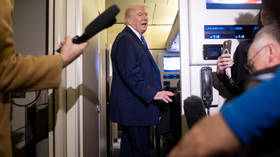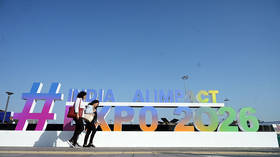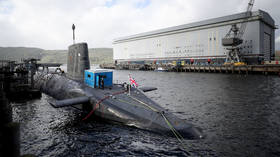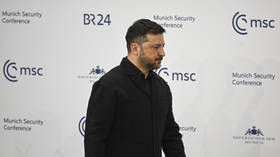The Middle East oil/nuclear puzzle
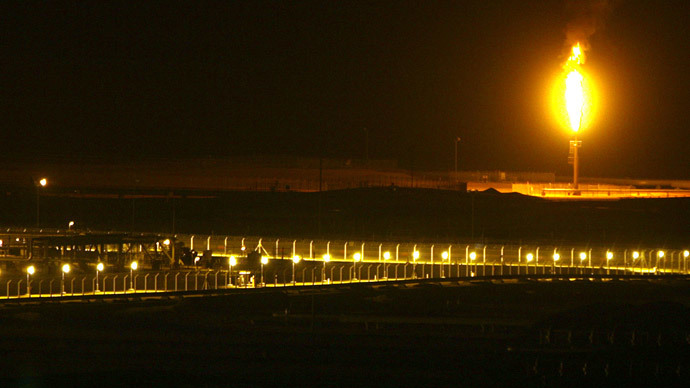
US Secretary of State John Kerry may be starting to enjoy the brinkmanship, as he says it’s “unclear” whether the US and Iran would reach a political framework nuclear deal before the end of this month.
Loud applause may be heard in corridors ranging from Tel Aviv to Riyadh.
As negotiations resume in Lausanne, the fact is a potential nuclear agreement between Iran and the P5+1 (US, UK, France, BRICS members Russia and China, and Germany) is bound to open the possibility of more Iranian oil exports – thus leading oil prices to fall even further. As of early this week, Brent crude was trading at $54.26 a barrel.
Assuming the US and the EU nations that are part of P5+1 really agree to implement the suspension of UN sanctions by the summer (Russia and China already agree), not only will Iran be exporting more energy – that should take a few months - but also OPEC as a whole will be increasing its oversupply.
The EU badly wants to buy loads of Iranian energy – and invest in Iranian energy infrastructure. Beijing, a key yet discreet member of the P5+1, is also watching these developments very carefully.
Whatever happens, for China this is a win-win situation, as Beijing keeps actively building up its strategic petroleum reserves profiting from low prices. And even as oil prices also remain under pressure from the strong US dollar – which makes oil way more expensive if you are paying with a different currency – that’s certainly no problem for China, with its mammoth US dollar reserves.
The oil price war essentially unleashed by Saudi Arabia has hit Iran with a bang. The country may be down, but not out. There were no good options for Tehran except to try to keep its market share by offering the same discounts – especially to Asia - the Saudis are offering.
Tehran has been under a tsunami of nasty Western sanctions for years, which limit its ability to export oil and increase production. It’s extremely difficult for the Iranian governments to reduce the gap of the expected revenue based on previous high oil prices.
Now the name of the game among major oil producers is to keep market share at all costs. Iran can’t escape it – as it needs to keep in check at all times the fear of oversupply and its desire to increase production. Some oil producing countries are definitely keeping upcoming oil supplies out of the market. The result is Iran will have serious trouble going for more production and more exports while trying to regain its pre-sanctions market share.

Wanna buy a Middle East condo?
While a sort of undeclared “oil war” is still far from reaching an endgame, the nuclear front promises some eye-popping breakthroughs.
Powerful - if sometimes conflicting – ‘Empire of Chaos’ factions in Washington are actively entertaining the dream of transferring US military assets from the Middle East to Europe to keep ratcheting up the pressure on Russia, under the pretext of the “aggression” on Ukraine.
That might happen only after “control” of the Middle East is somewhat shared between Turkey, Iran, and to a much lesser extent, the House of Saud. For the notoriously wobbly “Don’t Do Stupid Stuff” Obama administration’s foreign policy, this development would be a key rationale behind the push for a successful P5+1 nuclear deal with Iran to be reached this summer.
Iran has already cultivated – and blossomed - its own sphere of influence. It’s the Turkey-Saudi case that is way more complicated.
As much as Ankara is well aware of the fierce catfight for regional power between Tehran and Riyadh, it tries to maintain good relations with both.
Crucially it’s in Syria that Ankara and Riyadh are almost on the same “Assad must go” page. Almost – because in fact a pro-Muslim Brotherhood Turkey-Qatar alliance has found itself for four years in direct competition with a Salafi-boosting House of Saud.
Anyway, when Turkey’s President, also known as ‘Sultan’ Erdogan, visited the new Saudi King Salman in early March, they reached an understanding; they will both turbo-charge “support” – weaponized and otherwise - for the Syrian opposition. Problem is there is no credible Syrian opposition; virtually everyone that knows how to fight has migrated to the fake Caliphate of ISIS/ISIL/Daesh.
What this means in a nutshell is once again a Sunni against Shi’ite set up; a classic Divide and Rule gambit that is the perennial House of Saud priority.
The ’Empire of Chaos’, in theory, should but be pleased. But it’s not. The Obama administration’s objective – on the record – is “[prioritizing] the Islamic State, not Assad.”
But that may also change in a heartbeat. New Pentagon supremo Ashton Carter has just admitted, “the forces that we train in Syria, we will have some obligation to support them after they’re trained.” But that would also “include the possibility that, even though they’re trained and equipped to combat ISIL, they could come into contact with forces of the Assad regime.”
No wonder Damascus is weary, and will wait for US “actions” before any possible negotiation with Washington. One day Kerry says talks with Damascus are necessary to end the Syrian civil war. The next day he repeats, “Assad must go.”
Osama’s pal plays paranoia
As for a no-fly zone over northern Syria – heavily pushed by Erdogan, and a wet dream of neo-cons in Washington – it won’t fly. One extra reason for Ankara to stay away from this new Saudi anti-Iran push.
To complicate things further, power within the House of Saud remains diffused. Both the CIA and BND - German intelligence - agree, and there have been constant rumblings in Washington that the House of Saud eventually should go.
The House of Saud still has not understood that Syria is not the main “threat” against them. They are freaking out about their border with Iraq – as well as their borders with Yemen and Bahrain. On top of it they picked a fight with Russia via the oil price war. The Saudis say they are pumping only 9.5 million barrels of oil a day out of their 12.5 million barrels a day; Moscow is essentially saying they are pumping their entire capacity.
If the oil price war delights the Russia-demonizing ‘Masters of the Universe’, they are at the same time deeply enraged because it is decimating the US shale oil “revolution”. What’s left for masses of unemployed US workers? Find a job in Saudi Arabia. Still one more reason for the ‘Masters of the Universe’ to dump the House of Saud anytime they feel like it.
Predictably, House of Saud paranoia remains the norm. Former Saudi intelligence capo di tutti i capi (and former great pal of Osama bin Laden), Prince Turki, is on overdrive, charging Iran with being “a disruptive player in various scenes in the Arab world, whether it’s Yemen, Syria, Iraq, Palestine or Bahrain”; accusing Iran of “expanding its occupation of Iraq”; insisting “the enemy” is both Assad and ISIS/ISIL/Daesh; and last but not least unequivocally blasting any possible nuclear deal with Iran.
What’s even more worrisome is that King Salman brought Pakistani Prime Minister Nawaz Sharif to Riyadh – rushing to meet him at the airport - to confirm a key strategic, secret nuclear agreement before any Iran/P5+1 deal is clinched. The bottom line: the House of Saud does not trust the American nuclear umbrella anymore. They are making their own nuclear power play with the help of nuclear power Pakistan. The connection does exist, but remains extremely mysterious.
No need to outline the upcoming maze of ominous consequences. Demented nuclear Wahhabis, anyone?
The statements, views and opinions expressed in this column are solely those of the author and do not necessarily represent those of RT.
The statements, views and opinions expressed in this column are solely those of the author and do not necessarily represent those of RT.



